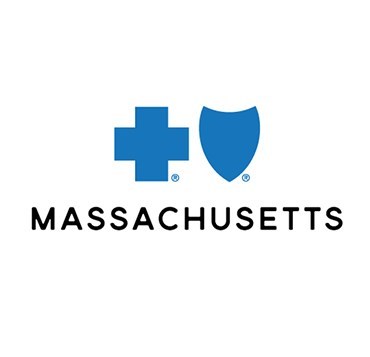Newsletter Signup
Stay up to date on all the latest news from Boston.com

The bans stem from so-called “blue laws” that also regulate which businesses can remain open and where alcohol can be sold on Sundays.
Animal welfare groups, conservation organizations and others are rallying to defend the prohibitions, but the end of the laws might be in sight. Other states such as Virginia and South Carolina have in recent years rolled back what remains of their own limitations on the Sunday hunt.
Residents of states where hunting is part of the culture are divided on the subject. Some hunters argue the laws protect private landowner rights, while others say the rules take away hunting opportunities — or are just plain silly.
Sportsmen who oppose the laws see them as a vestige of the blue laws dating to the 17th century and limiting what activities citizens can engage in on a day governments once dedicated to prayer.
Jared Bornstein, executive director of Maine Hunters United for Sunday Hunting, said allowing seven-day-a-week hunting would allow people the opportunity to harvest their own food in a state with many poor, rural communities that cannot afford soaring grocery costs.
“I’m not saying that Sunday hunting is going to save the world economically, but I’m saying for a group of people, there’s more of an objective benefit to it,” Bornstein said. “It’s a generation’s last vestigial attempt to control the working class.”
The states that still have full or partial bans on Sunday hunting are all on the East Coast, where every fall sportsmen pursue wild turkeys and white-tailed deer with firearms and archery.
Last year, South Carolina opened limited hunting on public lands on Sundays, and the year before that Virginia made a similar move.
A few years prior North Carolina began to allow Sunday hunting on some 75% of its public hunting land, according to the Congressional Sportsmen’s Foundation. Laws were also loosened in Pennsylvania, West Virginia and Delaware in the past five years.
Maine’s ongoing court case, which could legalize Sunday hunting, concerns a couple who filed a lawsuit stating the “right to food” amendment in the state’s Constitution, the first of its kind in the U.S., should allow them to hunt on any day of the week. The Maine Supreme Judicial Court has heard arguments in the case, but it’s unclear when it will rule, said Andy Schmidt, an attorney for the couple. The state first banned Sunday hunting in 1883.
In Massachusetts, where some sources date the ban all the way back to the Puritan era, a campaign to repeal it made progress before stalling in the state Legislature in 2014. Some are continuing to try to strike the law, which is “discriminating against hunters,” said John Kellstrand, president of the Mass Sportsmen’s Council. A new proposal to authorize Sunday hunting via bow and arrows was introduced earlier this year.
The efforts to roll back Sunday hunting up and down the East Coast face opposition from a broad range of interest groups, including animal protection advocates, state wildlife management authorities and private landowners.
Maine Woodland Owners, a group representing rural landowners in the most forested state in the country, sees the Sunday hunting ban as critical to keeping private lands open for hunting access on the other days of the week, Executive Director Tom Doak said.
“We’re not asking for money. We’re not saying pay us. We’re not asking for anything but to be left alone one day a week,” Doak said. “They will close their lands. They absolutely will do that.”
Sportsmen’s groups, including the National Rifle Association and Congressional Sportsmen’s Foundation, have long lobbied to overturn Sunday hunting restrictions, and have had much success over the past 30 years. In that time, states including New York, Ohio and Connecticut have loosened Sunday hunting laws.
Lifting bans has created hundreds of jobs and millions of dollars in economic activity, said Fred Bird, assistant manager for the northeastern states for the Congressional Sportsmen’s Foundation. Getting rid of what’s left of these laws would remove “a regulation that has no basis in wildlife management,” Bird said.
“Simply put, if hunters do not have available days to go afield, they must decide whether their time, energy, and financial resources should continue to be allocated to a pursuit they are unable to fully participate in,” he said.
Wildlife managers in states with Sunday hunting have sometimes pushed back at efforts to overturn the bans. The Maine Department of Inland Fisheries and Wildlife testified against a proposal earlier this year that would have allowed Sunday hunting with a bow and arrow or a crossbow.
Agricultural, land owner and conservation groups also came out against the proposal, which had support from the Congressional Sportsmen’s Foundation and some hunters in the state. The Maine Farm Bureau Association testified it’s important for land owners to have “one day of rest without disruption.”
The proposal was ultimately voted down in committee. However, the odds of a similar proposal coming before the Maine Legislature again seem high, testified Judy Camuso, commissioner of the wildlife department.
“The topic of Sunday hunting has been a heated social debate for years,” she said.


Local News
Fatal opioid overdose deaths in Massachusetts decreased by over 10% in 2023, marking the first annual decrease in four years, preliminary data from the Centers of Disease Control and Prevention (CDC) show.
Overdose fatalities decreased from about 2,647 in 2022 to 2,373 reported between December 2022 and December 2023. Nationally, reported deaths decreased by 5.1%.
Opioids like fentanyl and morphine remained the most deadly threat to residents of Massachusetts, but deaths involving opioids decreased significantly from December of 2022, according to the CDC. Deaths caused by cocaine and methadone increased slightly, data show.
The state’s Department of Public Health (DPH) said it continues to invest in harm reduction programs like expanding access to naloxone, fentanyl test trips, and sterile consumption supplies. Just in 2023, more than 262,100 naloxone doses were distributed through community-level naloxone distribution programs and more than 9,100 overdoses were reversed using the medication, DPH said.
Naloxone, also known by the brand name Narcan, binds to opioid receptors and rapidly reverses the effects of other opioids. In March 2023, the U.S. Food and Drug Administration approved Narcan nasal spray for over the counter use.
Despite the overall decrease in deaths, DPH said that more needs to be done to protect communities of color, which suffer the brunt of fatal overdoses.
In 2022, overdoses rose by about 2.5%, with Black, non-Hispanic people making up the largest increase, according to DHP data.
To combat inequity, the state plans to continue operating peer recovery support centers and funding Mobile Addiction Service programs in Brockton and Lowell, which provide medical care and harm reduction services to individuals at high risk of overdose.
In March, the Healey-Driscoll administration also launched a grant program for substance abuse prevention, targeting historically underserved communities.
2023 is the first time annual opioid deaths have decreased in the state since 2019. The latest figure is still an increase of about 7.9% when compared to 2019, according to CDC data.
This is the eighth year the Commonwealth will surpass 2,000 opioid overdose deaths per year. It surpassed the figure for the first time in 2016.
All New England states saw a drop in fatal overdoses in 2023. In Connecticut, deaths dropped by 10%; New Hampshire by 13%; Maine by 16%; Vermont by 8%; and Rhode Island by 15%.
Stay up to date on all the latest news from Boston.com

This Friday marks the 20th anniversary of the first legal same-sex marriage in the United States, which took place right here in Massachusetts. Chief Justice Margaret Marshall wrote the majority opinion that allowed same-sex marriages to begin on May 17, 2004.
Reflecting on the anniversary during an appearance on Boston Public Radio on Thursday, Marshall pointed to a recent study by the Rand Corporation that examined the impact of legal same-sex marriage over the past two decades. The research found it had no negative effects on the state of marriage, divorce or cohabitation among different-sex couples.
However, Marshall expressed concern over the growing uncertainty among same-sex couples regarding the security of their marriages in the current political climate.
“My greatest concern now is the number of times that people — gay people and people who’ve been married, not married — have come up to me and say, ‘Are we safe?’” she said.
While Marshall believes Massachusetts remains a safe haven for same-sex marriage, she acknowledged the national implications of judicial decisions.
“I believe in the commonwealth of Massachusetts, we are safe as we can be anywhere,” she said. “However, we are a national country. It goes across the country, and judges have influence.”
One such decision was the U.S. Supreme Court’s overturning of Roe v. Wade, which in 2022 eliminated the constitutional right to abortion after nearly 50 years. Justice Clarence Thomas suggested that the same rationale could be used to challenge rights to same-sex marriage.
“All of us are taught, lawyers and judges, that you decide the case in front of you,” Marshall said, criticizing Thomas. “I do find it a kind of lack of discipline to say nothing else … arrogance, perhaps, that you are opining on something that is not even before you.”
Despite setbacks, Marshall remains hopeful.
“I do believe the arc of justice turns in our nation,” she said. “I am well aware of the many, many steps that we have taken back and the many unfulfilled promises.”
Addressing young people, Marshall urged active civic engagement. “Do something, do something. And I don’t mean go on social media and sign an online petition. Get out there, get to know your elected representatives. The people in the legislature are the heart and lungs of democracy,” she advised.
“Show up, go on marches, protest, speak out loud. You have no idea what changes will come.”

BLUE CROSS BLUE SHIELD OF MASSACHUSETTS RECOGNIZED AS ONE OF THE 50 MOST COMMUNITY-MINDED COMPANIES IN THE UNITED STATES
Company invested $14.7 million dollars in financial, volunteer, and in-kind support to MA-based not-for-profits in 2023
BOSTON, May 16, 2024 /PRNewswire/ — For the fifth consecutive year, Points of Light, the world’s largest nonprofit dedicated to accelerating people-powered change, named Blue Cross Blue Shield of Massachusetts (Blue Cross) an honoree of the Civic 50. Additionally, for the first time ever, Points of Light is recognizing Blue Cross as the national Healthcare Sector Leader.
For more than a decade, The Civic 50 has served as the national standard for corporate citizenship and showcases how leading companies are moving social impact and community to the core of their business. The Civic 50 honorees are companies with annual U.S. revenues of at least $1 billion and are selected based on four dimensions of their corporate citizenship and social impact programs: investment of resources and volunteerism, integration across business functions, institutionalization through policies, and systems and impact measurement.
“As a community-focused, not-for-profit health plan, we’re committed to helping build healthier and more equitable communities,” said Jeff Bellows, vice president of corporate citizenship and public affairs at Blue Cross. “We strive to use our company resources, values and expertise to advance health justice and are proud to be recognized by Points of Light for our industry leadership to support the work of our not-for-profit partners.”
Blue Cross is committed to being a good corporate citizen and leader in health equity. In 2023, the company provided $14.7 million dollars in funding and pro-bono support to local not-for-profits focused on issues addressing food, environmental and racial justice. Eighty-eight percent of Blue Cross employees participated in company volunteer programs, contributing over 22,000 hours of service to support the health of Massachusetts communities.
“Expectations for companies to be leaders in civic engagement continue to increase,” said Jennifer Sirangelo, president and CEO, Points of Light. “Blue Cross demonstrates how to maximize the full range of their assets – from people power to policy to financial contributions – to meet pressing needs and create thriving communities where they live and work. We’re thrilled to uplift and celebrate them as an honoree of The Civic 50 2024.”
The Civic 50 survey is administered by True Impact, and the results are analyzed by VeraWorks. The survey instrument consists of quantitative and multiple-choice questions that inform the scoring process. The Civic 50 is the only survey and ranking system that exclusively measures corporate community engagement.
To view the Points of Light’s full report and see the full list of The Civic 50 2024 honorees, visit www.pointsoflight.org/the-civic-50.
About Blue Cross Blue Shield of Massachusetts
Blue Cross Blue Shield of Massachusetts (bluecrossma.org) is a community-focused, tax-paying, not-for-profit health plan headquartered in Boston. We are committed to showing up for everyone like they’re the only one and guiding our members to the exceptional health care they deserve – affordably, equitably, and seamlessly. In keeping with our commitment, we are rated among the nation’s best health plans for member satisfaction and quality. Connect with us on Facebook, Twitter, YouTube, and LinkedIn.
About Points of Light
Points of Light is a nonpartisan, global nonprofit organization that inspires, equips and mobilizes millions of people to take action that changes the world. We envision a world in which every individual discovers the power to make a difference, creating healthy communities in vibrant, participatory societies. Through 145 affiliates across 39 countries, and in partnership with thousands of nonprofits and corporations, Points of Light engages 3.7 million people in 16.7 million hours of service each year. We bring the power of people to bear where it’s needed most. For more information, visit pointsoflight.org.

SOURCE Blue Cross Blue Shield of Massachusetts


Biden takes role as bystander on border and campus protests, surrenders the bully pulpit


'You need to stop': Gov. Noem lashes out during heated interview over book anecdote about killing dog


RFK Jr said a worm ate part of his brain and died in his head


Man, 75, confesses to killing wife in hospital because he couldn’t afford her care, court documents say


Pentagon chief confirms US pause on weapons shipment to Israel


Here's what GOP rebels want from Johnson amid threats to oust him from speakership


Pro-Palestine protests: How some universities reached deals with students


Convicted MEP's expense claims must be published: EU court